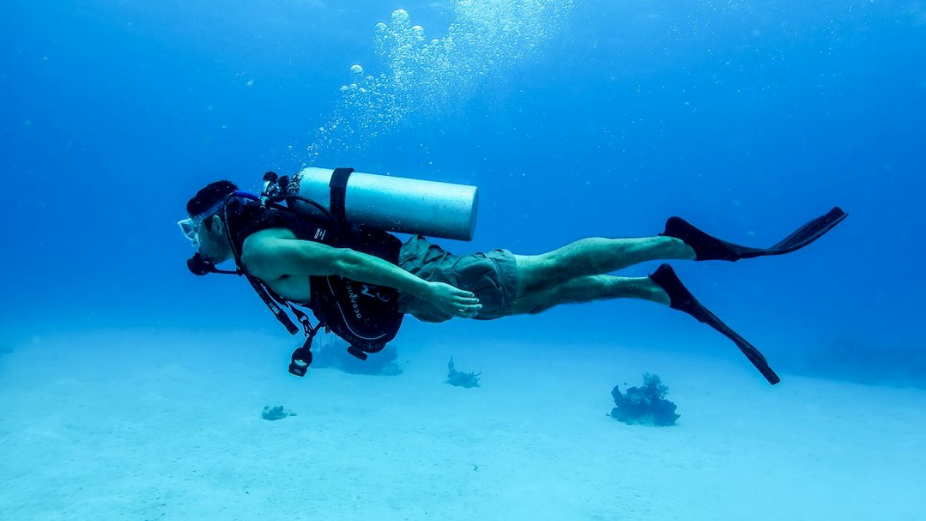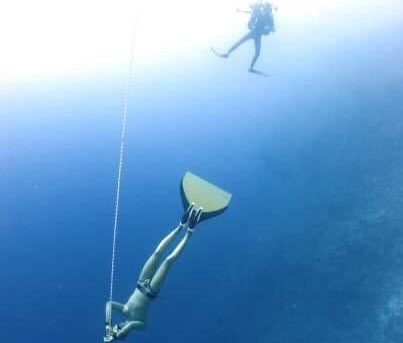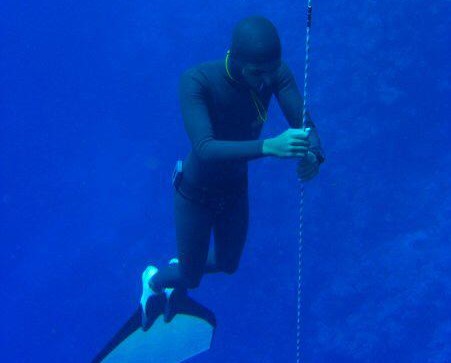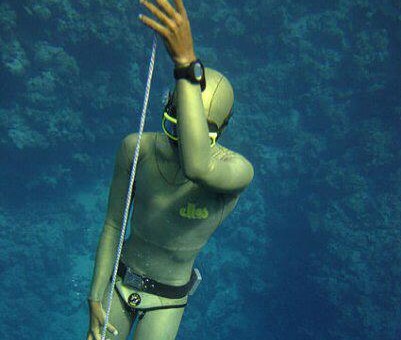
The recent death of a local free diver has brought the importance of safe diving into highlights. This has labelled diving as a dangerous and high-risk activity. Every year, approximately 200 divers die in the world.
“Although it’s a dangerous sport, the danger gets reduced to near zero by following safety protocols,” says Ismail, free diver and Resort Manager at Joali Maldives. “I travel to Bali every quarter because I know there I’m supervised and coached safely. I’m in Dahab, doing the same; of course, it has its financial implications, but what’s the value of money when I can’t spend on what I find joy, comfort, pleasure, and, most importantly, for my safety?”
As Ismail says, we don’t need to learn safe diving at the cost of young lives. So how can you ensure your safety while doing something you really love to do?
Hamza Mohamed has been freediving since 2004 and currently hold the National Record for the Maldives in constant weight 65 meters / free immersion 60 meters in World Championships in freediving. He shares with us 3 tips for safe diving.
Have a trained buddy system

The chances of a blackout diver surviving if there is a trained buddy and proper surface protocol is 100%. This is because no death from freediving ever occurred in competition from a blackout.
If you are a good free diver and if your buddy is not a trained freediver that is unable to dive comfortably to 20meters or below then your safety is compromised. You need to have buddy system in which both are properly trained free divers so one can save the other and knows the proper protocol to follow in case of the blackout.
Avoid actions that will lead to a blackout

Hyperventilation is any breathing pattern that flushes out Carbon dioxide from your lungs below normal levels. By hyperventilating, you are flushing out C02 – this gas is what signals the freediver to breathe. The lack of oxygen doesn’t cause you the urge to breathe.
A lot of free divers hyperventilate and flush out the normal accumulation of Carbon dioxide to be able to stay longer by feeling comfortable, but this comfort delays the mammalian dive reflex and the conservation of oxygen during the Free dive. So divers need to avoid hyperventilation and train to tolerate carbon dioxide.
Avoid caffeine, energy drinks, and any form of stimulants such as nicotine, nuts etc if you have a passion for freediving. These substances elevate your heart rate and cause havoc on the natural rhythm of your body.
Have proper training, physical fitness and comfort

Don’t go to depth below what’s comfortable. Free diving is about pleasure and with each deeper dive you should feel more pleasure











